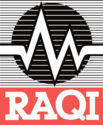Examinations
Conditions d’achèvement
Examinations
- Each qualification is verified by a corresponding examination.
- There are two (2) ways to be examined:
- through an accredited examiner, or
- in exceptional circumstances, at an Innovation, Science and Economic Development Canada office (Industry Canada prior to 2015).
In both cases, exams are prepared from the same Question Bank.
The accredited examiner is an amateur radio operator who typically dispenses exams on behalf of a local club:
Accredited examiners … " must be holders of an Amateur Radio Operator Certificate with basic, Morse code (5 wpm) and advanced qualifications" (RIC-1).
As the examiner can conduct all examinations, he must hold all said qualifications.
You may find an accredited examiner through the Amateur radio operator certificate services (new tab or window) page.
Examination scope
- Basic
- 100 questions (25 on regulations, 75 on radio theory, assembling and operating a station).
- Pass mark: 70% [was 60% until July 2005].
- Advanced
- 50 questions on advanced technical topics. Pass mark: 70%.
- Morse
- Sending and receiving with 5 errors or less.
- Each test comprises 3 minutes of clear language text at a speed of 5 words per minute (wpm), that is, about 75 characters.
- [ Morse qualification at 12 words per minute was discontinued in 2001. ]
Question Bank
- Written exams are created from pools of multiple-choice questions made public by the Department: see the Exam Generator link at Innovation, Science and Economic Development Canada (new tab or window).
- Published documents include questions and expected answers.
- Questions are sorted by topic.
- Exams include one question per topic.
- Basic qualification, 100 topics, 984 questions in total.
- Advanced qualification, 50 topics, 550 questions in total.
[ From 2001 to early 2014, the Question Banks were Radio Information Circulars, namely RIC-7 and RIC-8, now obsolete. ]
Modifié le: lundi, 23 juin 2025, 15:53
